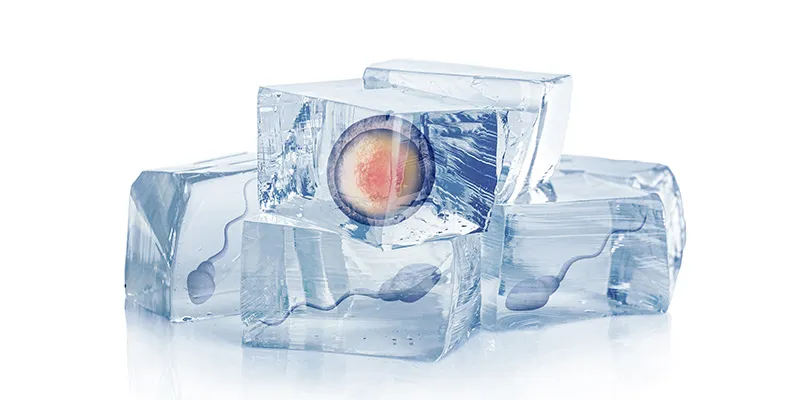Fertility Preservation / Gamete Freezing - Need of the hour
October 30, 2023
Imagine having the opportunity to start or expand your family, even if it's not possible right now. Fertility preservation through gamete freezing is revolutionising how people think about family planning. Let's explore the concept of gamete freezing and how individuals and couples can secure their reproductive options in the future.
What is fertility preservation?
Fertility preservation is a process allowing individuals or couples to freeze and store their eggs, sperm or embryos for future use. This can be an empowering option for those who are uncertain about their future fertility. By preserving your gametes at a younger age when they are at their peak quality, you increase the chances of successful conception when you are ready.
Why is fertility preservation important?
- Age-related decline in fertility: With age, the quality and quantity of women's eggs gradually decrease. By preserving eggs at a younger age, women can maintain their chances of successful conception even as they get older.
- Medical treatments affecting fertility: Certain medical treatments such as chemotherapy or radiation therapy can have adverse effects on reproductive health. Fertility preservation, before these treatments, provides an opportunity to protect future fertility.
- Genetic conditions: Individuals with certain genetic conditions or a family history of early menopause could preserve their gametes to ensure the possibility of having biological children in the future.
- Male Infertility Issues: Men facing fertility issues can also benefit from preserving their semen through sperm freezing. By freezing sperm, men can ensure they have viable options for assisted reproductive techniques like intrauterine insemination (IUI) or in vitro fertilisation (IVF) in the future.
- LGBTQ+ Family Planning: Fertility preservation is an invaluable resource for individuals within the LGBTQ+ community who wish to have biological children in the future. For same-sex couples, both partners can freeze their gametes to be used for assisted reproduction through IVF procedure or surrogacy.
What are the options for fertility preservation?
- Egg freezing: Also known as oocyte cryopreservation, this procedure involves retrieving mature eggs from a woman's ovaries, freezing them and storing them for later use. When she is ready, the frozen eggs can be thawed, fertilised with sperm, and transferred to the uterus.
- Sperm freezing: Sperm cryopreservation is when semen samples are collected and frozen for future use. This is often recommended for men who are undergoing medical treatments that may impact their fertility or those in high-risk professions.
- Embryo freezing: This process involves fertilising retrieved eggs with sperm to create embryos. These embryos are then frozen and stored until they are ready to be transferred into the uterus.
How does gamete freezing work?
- Consultation: Schedule a consultation with a fertility specialist who will assess your circumstances and determine the best course of action for you.
- Hormone stimulation: Women undergoing egg freezing will need to take fertility medications to stimulate their ovaries to produce multiple eggs instead of the usual one during each menstrual cycle.
- Gamete retrieval: Once the eggs have reached maturity, they will be retrieved through a minimally invasive procedure called follicular aspiration under sedation or anaesthesia.
- Freezing and storage: The retrieved eggs, sperm, or embryos are carefully frozen using specialised techniques that protect their viability during storage.
- Future use: When you are ready to start your family, the frozen gametes can be thawed and used in conjunction with IVF procedure or IUI procedure.
At Apollo Fertility, we understand the importance of family planning and offer comprehensive fertility preservation services for your individual needs. Our team of experienced fertility specialists will guide you through every step of the process and help you make informed decisions about your reproductive health.
In India, gametes can be stored for up to five years as per the guidelines set by the Indian Council of Medical Research. However, extensions to storage periods can be granted under certain circumstances.
Yes, you can arrange for the transportation of your frozen gametes to another location. It's important to consult with your fertility clinic for guidance and assistance in this matter.
Gamete freezing is a safe and effective procedure that has helped thousands of individuals and couples start a family. However, it doesn't guarantee pregnancy. Success rates depend on various factors including the individual's age at the time of freezing, overall health and other fertility-related factors.